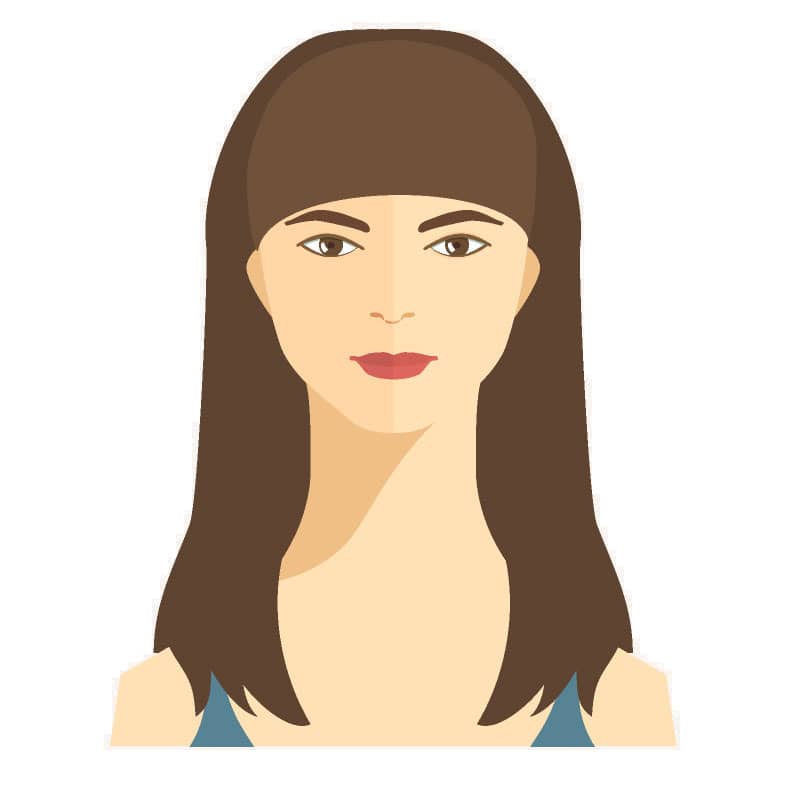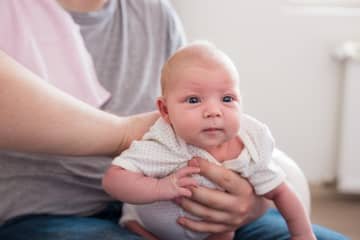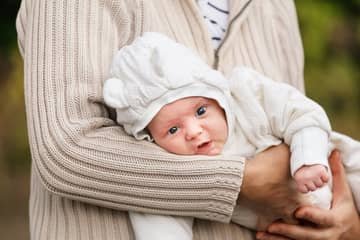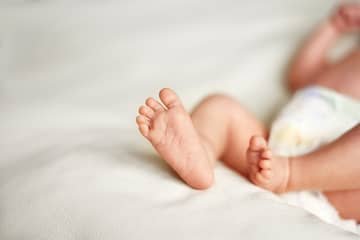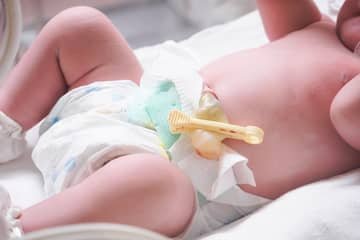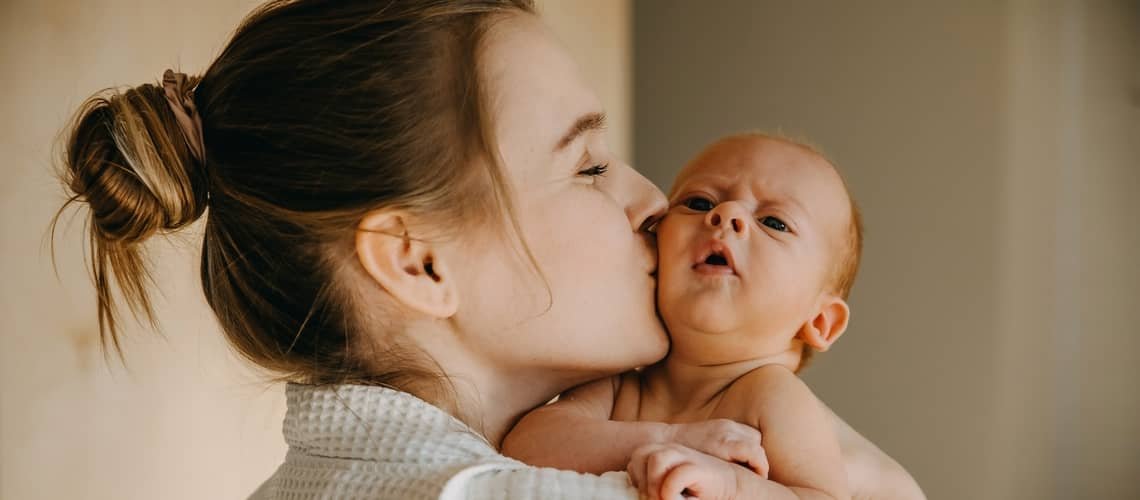
Newborn hiccups. How to stop baby hiccups
Newborn hiccups are usually cute, but if they happen several times a day, they can gradually become a bit annoying. Newborns and infants wait more often than adults, so it is not surprising that many mothers experience this phenomenon. Hiccups, especially after breastfeeding or feeding, appear in the first weeks and months of the baby's life, and gradually stop.
In newborns, it is a physiological process, hiccups can even appear already in the baby's tummy. Why does a newborn hiccups, how to prevent hiccups and how to stop them?
Newborn hiccups in the tummy
Hiccups are a completely normal phenomenon in babies. You can meet her already during pregnancy, e.g. during sonographic examination. According to one of the theories, it is a reflex that prevents the embryo in the womb from inhaling the amniotic fluid. Some theories claim that in this way, the baby exercises its muscles in the abdomen in order to be better prepared for independent breathing. The fact is that even scientists are still not quite sure what causes hiccups. It is a reflex-induced sharp and rapid contraction of the diaphragm, an involuntary contraction of the diaphragm, during which the vocal cords close for a short time and a typical sharp sound is produced by the body when inhaling. However, the exact triggering mechanism of hiccups is not yet known.
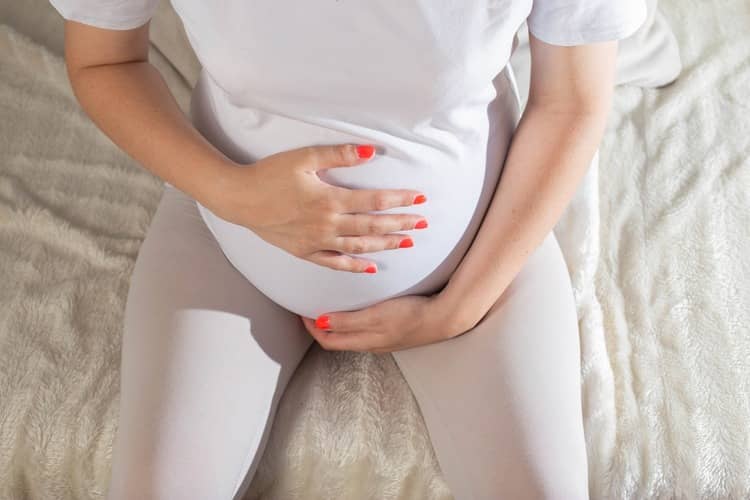
Why does a newborn hiccups
Hiccups in babies most often occur during feeding, it is caused by the fact that the baby is too fast, eats too much, swallows too much air. During hiccups, the diaphragm contracts spontaneously, the baby breathes in, the laryngeal valve closes and air cannot escape. During feeding, the small stomach fills up quickly and presses on the diaphragm, creating a disproportion between the capacity of the stomach and the food taken. The result is hiccups often associated with grunting, which can be complicated by sneezing and reflux. Babies have an immature sphincter above the stomach, which, along with gastroesophageal reflux, is to some extent responsible for the accompanying burping after feeding.
Hiccups also appear in babies when exposed to cold. A baby cannot maintain an adequate body temperature on its own, as thermoregulation is not yet fully developed at this age. Therefore, it is necessary to make sure that the child is sufficiently dressed, the head and limbs should be warm.
Hiccups may be related to brain development
Researchers from the University College of London published a study in 2019 in the journal Clinical Neurophysiology that suggests hiccups may be related to brain development in both premature and full-term babies. Hiccups can trigger electrical activity in the brain that helps babies learn how to regulate their breathing. They conducted the study on 217 infants aged 30 to 42 weeks. According to scientists, all hiccups took place during wakefulness or active sleep. In all newborns, each hiccup elicited three brain waves, with the last wave helping the baby associate the sound of the hiccup with the contraction of the diaphragm.
According to the study, hiccups appear in full-term and premature babies and start in the mother's womb as early as the 9th week of pregnancy. Premature babies are more prone to hiccups, and the condition can last for several minutes at a time.
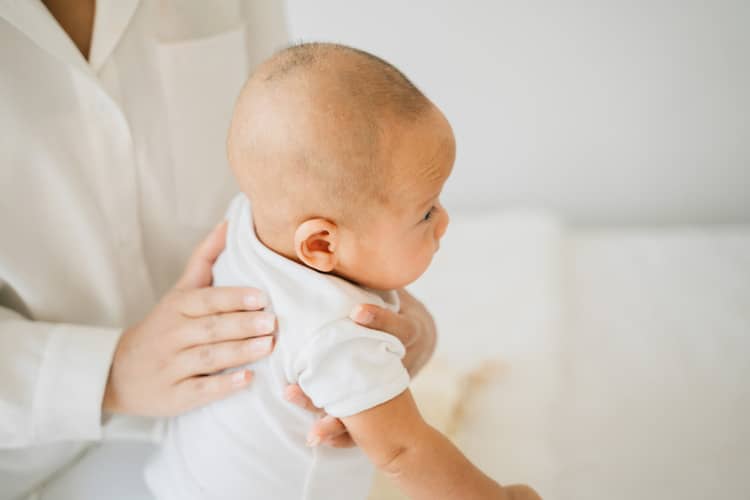
How to stop baby hiccups
Hiccups are not dangerous for the baby, so if you see that it does not bother him, you do not need to pay attention to the hiccups. As it appears, so it disappears. If you still want to stop your baby's hiccups, you can try several methods. How to stop hiccups?
- Break during feeding: If the baby begins to vomit during formula feeding, take a short break after every 30-50 ml. Try putting it in a vertical position to burp. When breastfeeding, let the baby burp after feeding. Changing the feeding position can be helpful.
- Re-attachment: Sometimes it can help to let the baby drink again after breastfeeding.
- Patting on the back: You can shorten the hiccups by simply patting the back. Place the baby's tummy on your hand, gently stroke his back with the other.
- Distracting the child: Try to interest the little one with a new stimulus. Talk to him, sing to him, walk with him and show him, for example window view.
- Changing the feeding routine: If it seems to you that the baby waits too much while feeding, try to feed him more often and in smaller portions. So it swallows less air.
You can try blowing into the baby's face, it will change its breathing rhythm and the diaphragm can relax. It is often recommended to hold the baby's nose and mouth for a few seconds to stop his breathing. In this case, press the wings of the nose with two fingers and, in a healthy newborn, close the oral cavity for about 5 seconds. However, we do not recommend this method, we do not consider it the safest.
How to prevent hiccups
Although hiccups are a natural phenomenon and cannot be completely eliminated from life, they can be largely prevented.
- Try to feed the baby more often so that he is calm while eating. If he is too hungry and starts crying, there is a risk that he will swallow too much air during feeding, which can lead to hiccups.
- After eating, keep the baby in a slightly upright position for 20-30 minutes so that it burps calmly.
- After feeding, avoid large movements, let the child digest in peace.
- Try massaging the baby's feet. Massaging removes tension, the breath becomes calmer and the diaphragm relaxes.
- If the reason for hiccups is cold or a change in temperature, warm clothes will help.
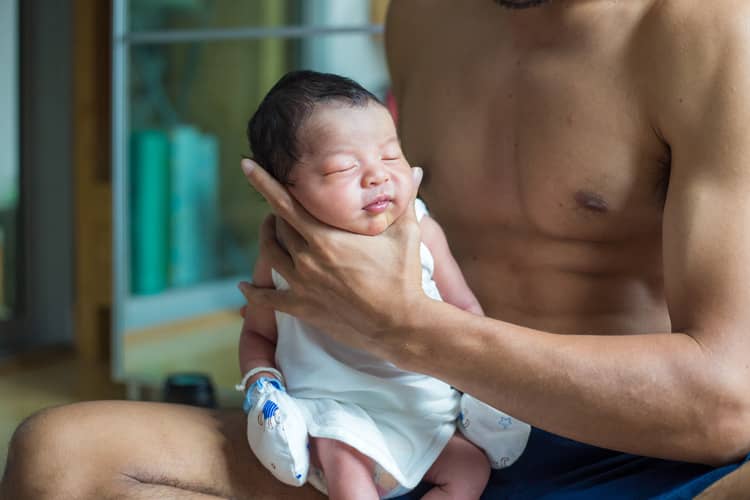
Newborn hiccups - experience
As doctors have confirmed to many mothers, hiccups are normal and can sometimes last even 15 minutes. To the question "What about hiccups in a newborn?", they provided several pieces of advice. They recommend a teaspoon of baby water or tea, a few drops of lemon on the tongue, changing the position during feeding or putting it to the breast again. They often claim that hiccups are a manifestation of hidden reflux and are one of its symptoms.
The most frequent questions - FAQ
How to get rid of hiccups? Can it be prevented? Is hiccups dangerous for a newborn? In the article, we presented the causes of hiccups and ways to get rid of them and how to prevent them. If you have other questions about this topic, want to share your experience and advice with newborn hiccups, write to us in the comments. We will reply as soon as possible.
What does a hiccup signal?
What helps with hiccups?
When to go to the doctor with hiccups?
Pridať komentár
